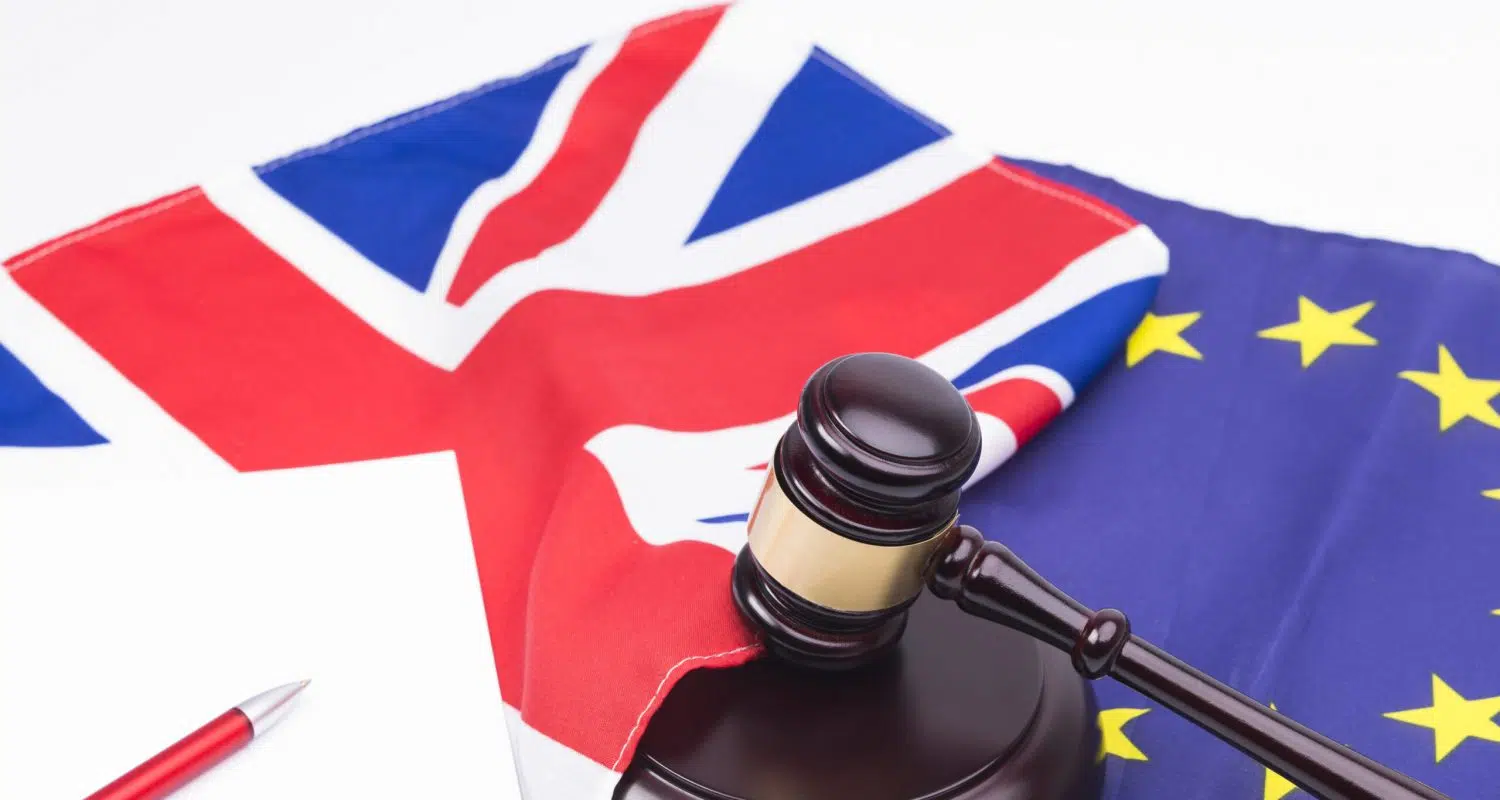Here’s what to look out for when translating customs documents and the like
On January 1, 2021, the deed was done: after years of debate, the United Kingdom was out of the European Single Market and the customs union. All’s well that ends well? Not by a long shot! After 12 months of an EU without the UK, companies, politicians, economists and consumers on both sides of the Channel have learned that there is still plenty of work ahead. So keep calm and carry on! There were some things everyone saw coming – like the extra work that Brexit would mean in terms of documentation plus the required translations . If you want to export goods from the EU to the UK while meeting all the requirements and improving processes, you need a sound, systematic strategy that incorporates translation expertise.
Despite Brexit, it is well worth exporting and expanding to Great Britain. After all, the market is diverse and growing: in 2021 alone, the GDP is estimated to have reached around USD 3.12 trillion – and rising. So how specifically did Brexit impact companies? It ended the “four freedoms” involving the movement of people, goods and capital and the ability to establish and provide services. The result: online stores and other companies that do business internationally need to set up new shipping, carrier and customs processes along with contracts that provide a high degree of planning security.
All the customs regulations governing the exchange of goods with non-EU countries have been in place for a couple of months now. Products shipped to the UK from Germany, for example, are designated as tax-free exports. But every shipment to the UK requires an export declaration under customs law. Customs declarations in the UK can be handled by service providers like shipping companies and logistics providers. On top of that, imports into Great Britain require a GB EORI number, and imports coming into the EU need an EU EORI number. Plus, the goods are subject to British VAT, so sellers need a sales-tax registration. Deliveries worth less than GBP 135 are not subject to customs duties or the UK import sales tax. But they still require a customs declaration. They key to navigating that step safely is the proper description of the goods that are being declared by the business partner outside the UK. That helps prevent things from getting held up in customs.
Without the help of a specialist translator, UK imports and exports are very tough terrain to navigate. There’s simply too much that can go wrong with customs declarations, customs documents, financial records, identification documents and more. Experienced native speakers who are sworn translators in the UK are your best bet, because they are authorized to provide certified translations of official documents. The translation agency you work with should also be certified to ISO 17100 standards, which is your guarantee that they meet rigorous quality standards. Also look for one that provides proofreading as standard. So when you receive a translation, you can rest assured that it has been double-checked and corrections made where necessary. In addition, there are many cases where confidentiality and trustworthiness are vital – especially when inside information and personal data are involved.
And that’s not all that companies should take to heart in matters of Brexit and translations.
1. Put professional translations in the center of your Brexit strategy:
Want to do business in the UK? And get everything from the paperwork to on-target marketing just right? Then choose a translation provider that gives you all the language services you need from a single source and hooks you up with trained experts. From your website to your customs paperwork to a contract with a British business partner, your ability to do business successfully hinges on correct, precise language that’s fit for purpose.
2. Decide how you will communicate with whom:
Making a list of all your contacts and partners will give you a good picture of who needs what languages and what types of services. There are 24 official languages in the European Union, but over 200 languages altogether! In the wake of Brexit, are there other languages and countries that you should focus on? What’s the best way to reach manufacturers, carriers, partners, traders, customers and other people you need to talk to? These are the questions you need to answer as soon as you start planning your post-Brexit strategy.
3. Define tasks that require translation expertise:
List all the different texts and formats that you can (and should) outsource to specialized translators. These include business communications like emails, letters and newsletters, as well as websites, contracts, agreements, interpreting services, and even video voiceovers and subtitles.
4. Always work within the legal and cultural context of your target countries:
A contract for the purchase and sale of goods is a legal document that governs the business relationship between two parties. And if it involves imports, exports, foreign subsidiaries or some type of business cooperation, odds are it will need to be translated. English may be the native language of one of the parties, or it may be chosen as a lingua franca to make communication easier. Always entrust such documents only to a provider who can guarantee that the translation is accurate and will hold water legally – i.e. an experienced, specialized legal translator. Any mistakes or inaccuracies here can be very costly, and an expert is your best defense. Of course, putting yourself in the locals’ shoes on the cultural level is just as important as adhering to the local legal stipulations. So the ideal choice is a legal translator who is also a native of the country where your document will be used.
Doing business with the United Kingdom or looking to expand there? Let us help you clear the Brexit-related hurdles in 2022 and beyond. The challenges may have grown, but the goal is the same: business success!








